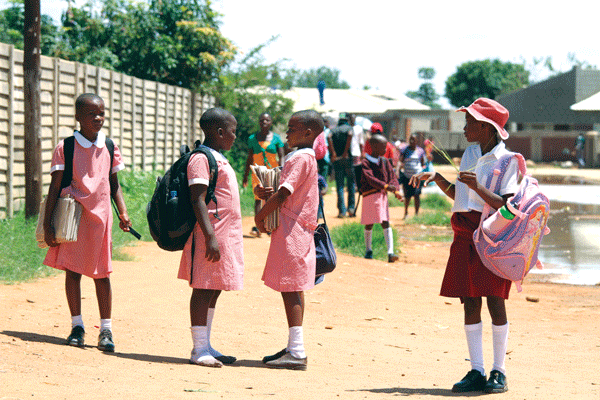
The return of non-examination classes tomorrow will mark the last stage of the phased re-opening of schools this year following two months of disruptions due to a surge in Covid-19 cases.
After losing almost the entire 2020 school calendar because of national lockdowns that were introduced to slow down the spread of the infectious disease, 2021 started on a very bad note for Zimbabwe’s education sector.
A lot of time has already been lost this year and it might be difficult to recover given the uncertainty caused by the prevalence of Covid-19.
The disease that was first detected in Zimbabwe a year ago, remains a very huge threat with a third wave looming if global trends are anything to go by.
Expectations are that schools and the government have come up with solid plans to enable children to catch with their studies within a very short period of time.
The situation in public schools, however, is not promising because teachers are disgruntled and the government does not to seem to care.
Teachers, like the majority of government workers, are not happy about the level of their remuneration and have been grumbling for a couple of years now.
They have been demanding the restoration of their salaries to pre-October 2018 levels when the government started paying them in local currency.
- Chamisa under fire over US$120K donation
- Mavhunga puts DeMbare into Chibuku quarterfinals
- Pension funds bet on Cabora Bassa oilfields
- Councils defy govt fire tender directive
Keep Reading
Civil servants want their salaries to be pegged in United States dollars because the local currency has been losing value in a very big way.
Salaries have been eroded by inflation and some teachers may not be able to raise bus fares to return to their workstations.
The government has been very dismissive of unions that have been raising complaints about their employer’s reluctance to review their conditions of service.
Last year teachers went on a prolonged strike, but they ended up returning to work after the government simply ignored them.
It was the schoolchildren, who suffered most from the stalemate because they were not learning.
A similar scenario could play out this term as some unions are already indicating that their members would not return to class until their demands for improved working conditions are met.
There is a likelihood that those who will be intimidated to return to work will not be teaching in protest.
It is, therefore, important for the government to move away from its business as usual approach in dealing with problems in the education sector.
Only dialogue between the employer and its employees will ensure the smooth running of schools this term.











